Holiday Heartbreak: Some Retailers Struggle, Others Triumph
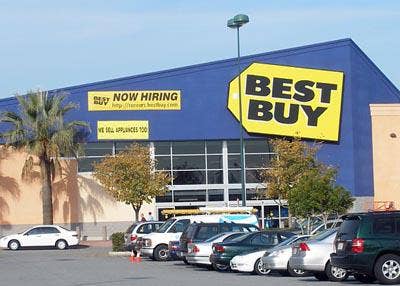
Consumer electronics retailers are keeping a keen eye on consumer spending trends as the holidays draw closer. Some have posted poor quarterly results with chopped projections, citing the rough economy and waning consumer confidence. Others have been hit harder, filing for Chapter 11 bankruptcy. Still, there are a crop of retailers that expect to buck the trend and hit their targets during the ever-important November-December shopping season, where, typically, retailers can realize a 50 percent sales bump. But to paraphrase Best Buy's president and COO Brian Dunn: No retailers are immune to the turbulent economic waters. Here, we take a look at some of the nation's top consumer electronics retailers and their current financial situation. Who will flounder and who will flourish?
Best Buy Minneapolis-based Best Buy, the nation's largest consumer electronics retailer, painted a bleak picture this week, announcing that global comparable store sales, which measure sales at stores open for at least 14 months, dropped by 7.6 percent in October, following a slight drop of 1.3 percent in September.
That two-month stretch prompted Best Buy brass to cut its full-year profit forecast, saying a comparable store could drop between 5 percent and 15 percent in the remaining months of fiscal 2009, resulting in an annual comparable store sales decline of 1 percent to 8 percent. Best Buy said it now expects earnings for the year to be between $43.7 billion and $45.5 billion, or between $2.30 and $2.90 a share. Best Buy had previously provided earnings guidance of $3.25 to $3.40 per share for fiscal 2009, based on an annual comparable store sales increase of 2 percent to 3 percent.
Economic uncertainty and questions around consumer spending prompted Best Buy president and COO Brian Dunn to proclaim: "In 42 years of retailing, we've never seen such difficult times for the consumer. People are making dramatic changes in how much they spend, and we're not immune from those forces."
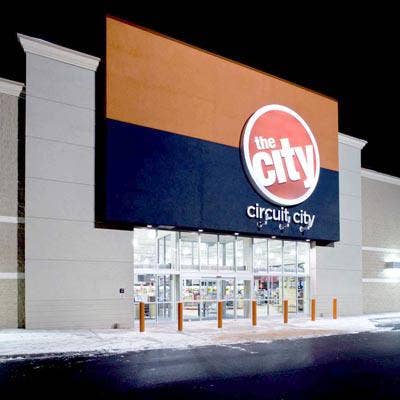
Circuit City has been slapped hard in the economic downturn. This week, Circuit City filed for Chapter 11 bankruptcy protection, just a week after announcing it would close 155 stores nationwide and delay planned store openings.
While Circuit City has vowed to stay open for the holiday shopping season in hopes to climb out of economic uncertainty, the consumer electronics chain said its deteriorating liquidity position, the weak economy and tighter credit terms from vendors, which are requiring retailers to pay up-front for product before it's shipped to stores, has the struggling retailer on the defensive.
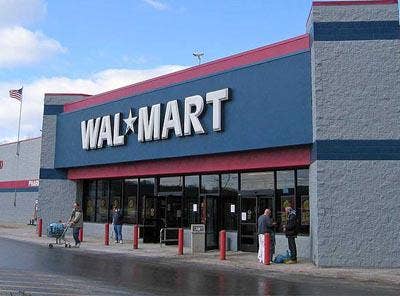
Wal-Mart Stores, which has become a bastion for the cost-conscious consumer electronics buyer, has so far bucked the slump, this week announcing that net sales rose 7.5 percent to $97.63 billion for the third calendar quarter, a jump from the $90.83 billion in the same time period last year.
The positive turn prompted the discount juggernaut to estimate that U.S. same-store sales will rise between 1 percent and 3 percent for the fourth quarter.
"We are very pleased with our results this quarter," Wal-Mart president and CEO Lee Scott said in a statement. "Despite economic difficulties around the world, we achieved solid sales and earnings growth, and we are optimistic about the upcoming holidays."
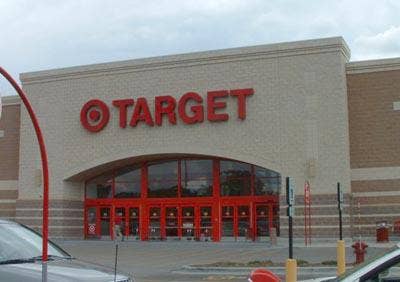
Where Wal-Mart has shown it can weather the storm, discount rival Target may not be so lucky. Target is expected to release its earnings next week, but analysts are expecting the economic downturn to hit a bull's-eye on Target's profits.
Last year, the holiday season accounted for 26 percent of Target's yearly profit, but the company has faced four consecutive quarters of declining profits, and market analysts expect this past quarter to be the fifth.
According to a recent Reuters report, Target is expected to report earnings of 49 cents per share, next week, down from 56 centers per share a year ago.
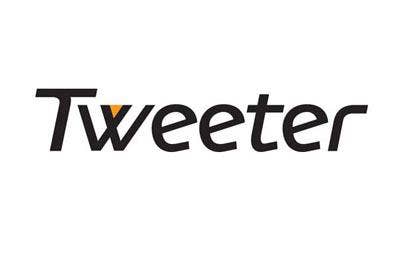
Consumer electronics retailer Tweeter filed for Chapter 11 bankruptcy protection this month, the second time in two years the 94-store chain sought court protection from creditors.
Tweeter has already started store-closing sales, saying it expects to sell more than $45 million in product during the 8-week liquidation. In its filing with the U.S. Bankruptcy Court, Tweeter said it was in the midst of a "severe liquidity crises brought on by slow sales."
The Massachusetts-based chain first filed for Chapter 11 in June 2007 and was later bought out of that slump by Schultze Asset Management.
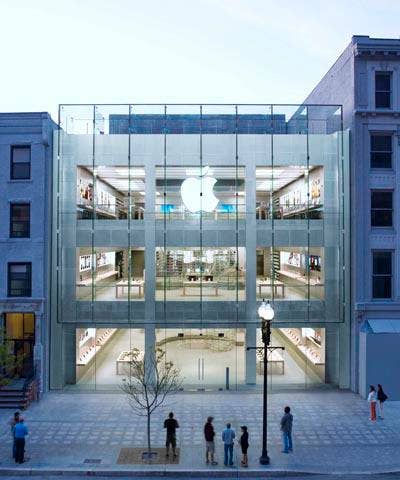
Apple, to this point, has been unbitten by the sinking economy, last month posting fiscal fourth quarter revenue of $7.9 billion and net quarterly profit of $1.14 billion, or $1.26 per diluted share, a sizeable increase over a year ago when Apple posted revenue of $6.22 billion and net quarterly profit of $904 million, or $1.01 per diluted share.
In the fourth quarter, Apple shipped more than 2.6 million Macintosh computers, representing 21 percent unit growth and 17 percent revenue growth over a quarter one year ago. Additionally, the company sold more than 11 million iPods in the quarter and just shy of 7 million iPhones, increasing sales in both segments over last year.
"Apple just reported one of the best quarters in its history, with a spectacular performance by the iPhone...," Apple CEO Steve Jobs said. "We don't yet know how this economic downturn will affect Apple. But we're armed with the strongest product line in our history, the most talented employees and the best customers in our history. And $25 billion of cash safely in the bank with zero debt."
And Apple is looking to bulk up its revenue bonanza with its largest Black Friday sale in history, wrote Ben Reitzes of Barclays Capital in a report to clients that was obtained by Apple Insider.
"We have not seen any Apple Black Friday ads yet (as is customary), but expect the company to be more aggressive than usual in its one-day sale, perhaps with $100 off a few Mac models and discounts on several iPods," Reitzes wrote.
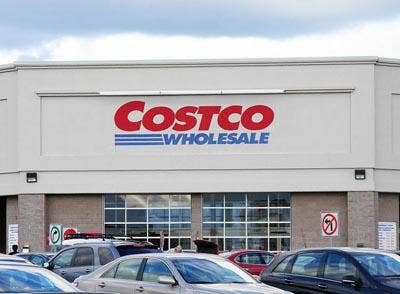
Costco Wholesale also seems undeterred by the downturn. Last week the Issaquah, Wash.-based 546-store wholesale warehouse chain reported U.S. net sales of $5.3 billion for the month of October, a 2 percent increase from the $5.21 billion in the same four-week stretch last year. And in the first 9 weeks of its reporting period, which ended Nov. 2, Costco reported net sales of $11.97 billion, a jump of 6 percent from the year before.
Wholesale chains have become a haven for shoppers looking for bargains on consumer electronics, though Costco's numbers don't reflect sales figures for each specific department.
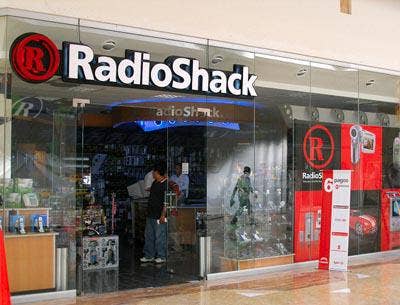
Fort Worth, Texas-based RadioShack is also bucking the downward trend. Last month, the consumer electronics and do-it-yourself retailer announced net third quarter income of $50.2 million, compared with net income of $46.3 million from the third quarter the year before.
Additionally, RadioShack said comparable same-store sales for company-owned stores and kiosks jumped 7.7 percent during the third quarter over a year ago. However, RadioShack said that despite the strong showing, sales lost some momentum in September.
Still, RadioShack is proceeding with caution as it enters the holiday spending season with a cloud of economic crisis looming.
"We are pleased with the overall outcome of our third quarter, especially in light of the difficult economic environment," Julian Day, RadioShack chairman and CEO, said in a statement. "After strong months in July and August, our sales and earnings trends slowed in September. We anticipate that this challenging retail environment will continue."
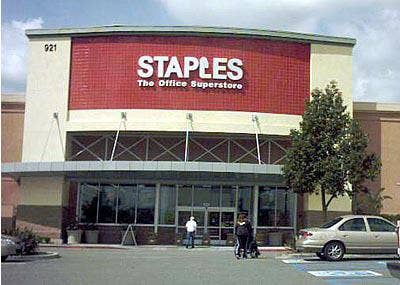
Office supply and consumer electronics retailer Staples hopes to weather the downturn by tightening capital spending and opening fewer stores next year compared to this year.
According to Framingham, Mass.-based Staples, it expects to report earnings of 21 cents to 22 cents a share for the third quarter ending Nov. 1, a drop from 38 cents from the same time last year. Staples' earnings pre-release did not indicate a quarterly revenue estimate.
Overall, Staples anticipated that comparable same-store sales will be down 8 percent for the third quarter when Staples releases financial results next month. A sales drop will mark the company's sixth consecutive quarterly decline.
Additionally, Staples said it will restrict capital spending to under $500 million and open only 75 stores n North America in 2009, down from 110 openings in 2008.
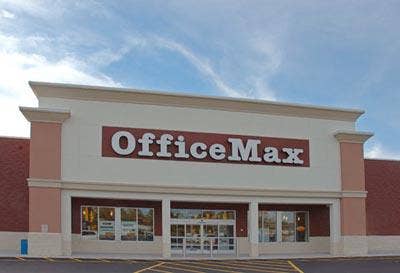
OfficeMax, too, is feeling the heat from the lack of consumer confidence. This month, the Naperville, Ill., office supply and electronics retailer said its total third quarter sales decreased 9.5 percent to $2.1 billion, compared to the third quarter in 2007. OfficeMax reported a net loss of $432.7 million, or $5.70 per diluted share.
In a statement, OfficeMax chairman and CEO Sam Duncan said, "In the third quarter, we operated in a weaker selling environment than in the third quarter of 2007 for both our Contract and Retail segments. The challenging environment, along with our more disciplined approach to customer acquisition and retention in Contract as well as promotional strategies that are focused on preserving gross margin in Retail are reflected in our results. Nonetheless, our success in continuing to lower expenses was offset by reduced sales volumes that deleveraged fixed costs in both the Contract and Retail segments, resulting in lower profitability."
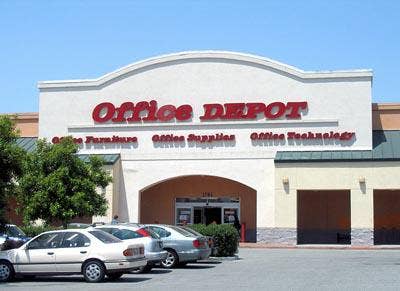
In its third quarter results, Delray Beach, Fla.-based Office Depot posted a 7 percent companywide sales decrease, with sales dipping to $3.7 billion and reported a net loss of $7 million compared to earnings of $117 million in the same period last year.
That drop, Office Max said, includes a charge of roughly $21 million for North America Retail store impairment and closing costs and a UK tax law change.
It its North American Retail Division, sales were $1.6 billion for the third quarter, down 11 percent compared to the third quarter last year. Comparable store sales in the 1,203 U.S. and Canada stores decreased 14 percent in the third quarter.
"The company continues to be negatively impacted by weakening business conditions in North America," Office Depot said in a statement.
Additionally, Office Depot said its North American Business Solutions Division sales were down 10 percent to $1.1 billion compared to the same time last year "driven by further deterioration in our small- to medium-sized customer base and a significant reversal in the sales growth trend among our large national account customers and the public sector."